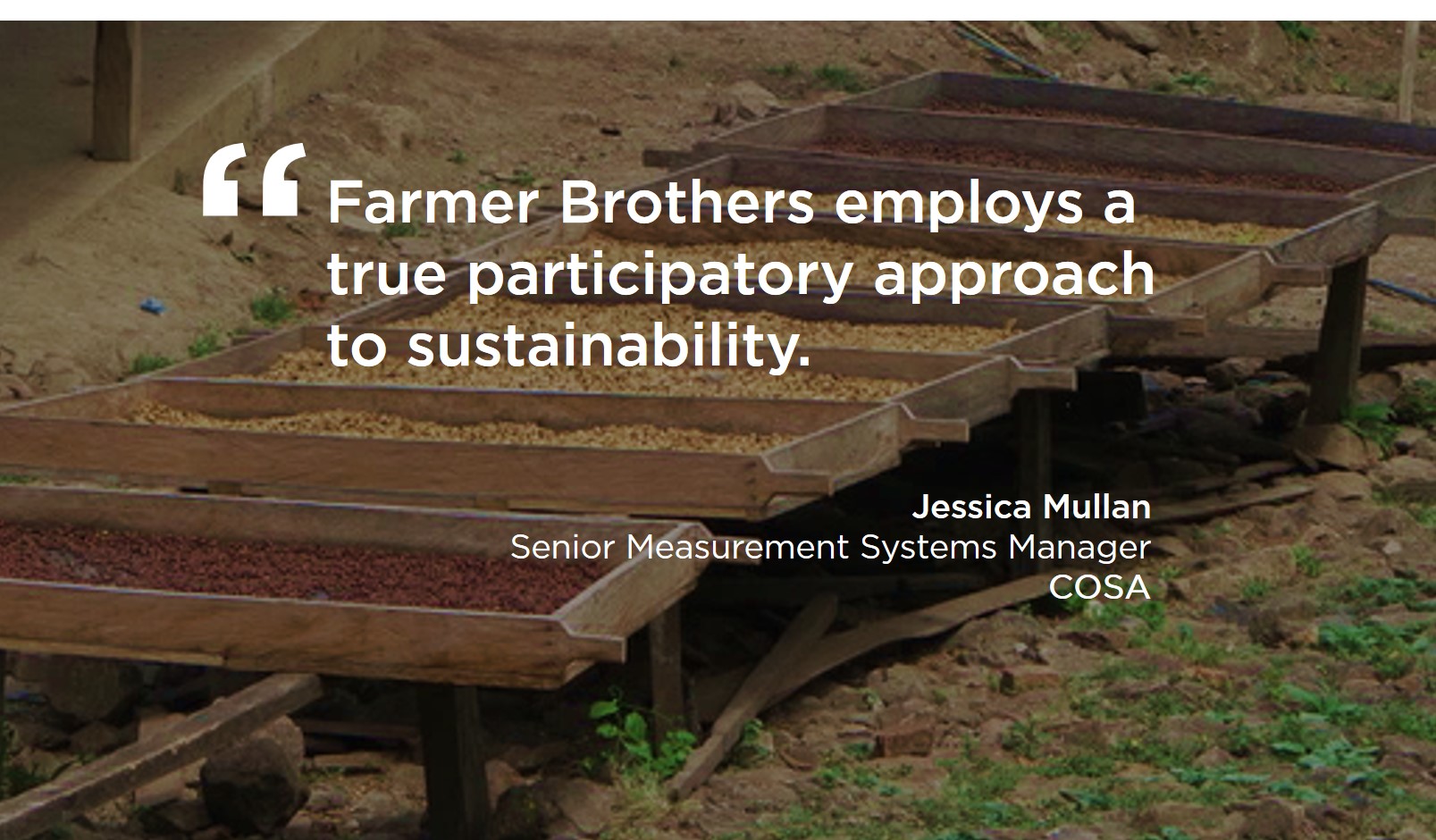
In a sea of inadequate corporate compliance checklists, one company has distanced itself noticeably. By helping its growers build more sustainable businesses, Farmer Brothers is proving that investing in farmer-direct approaches builds deep ties and sourcing success for the long term built on relationships.
“Farmer Brothers employs a true participatory approach to sustainability,” says Jessica Mullan, COSA’s expert on metrics, “which is admirable and has lasting effects in the communities where they source”. The emphasis on farmer feedback at all parts of the investment cycle is invaluable, from the farmers’ participation early on in the design of sustainability programs to address real issues, to training program technicians to monitor programs regularly. They work to ensure that farmers are engaged and receiving value. All of these factors contribute to an innovative sustainability program driving real change.
Senior researcher Carlos de los Rios elaborates: “One of the salient features of Farmer Brother’s interventions lies in their ability to listen to farmers. Every intervention in the region starts with a thorough understanding of farmers’ livelihoods, from which a set of critical issues are identified, and then validated again with farmers”. This simple issue, he says, makes a huge difference in terms of return on investment, as the likelihood of practice adoption is large, and therefore expected outcomes and impacts are potentially large.
This ‘demand-driven approach’ is unusual in the development sector, let alone in the business world. A demand-driven model of intervention tailors programs to the needs of farmers, rather than their “needs” as identified by donors. In his article “The Art of Listening to the Farmer,” Carlos writes:
“Until the mid-1980s, development agencies favoured a ‘supply-led approach’ to development, one that inevitably favoured donor priorities and preferences. This supply-led approach assumed a few things. First, that a ‘one-fit’ solution was appropriate, regardless of contextual variation. So, the same prescription was deemed to work equally well, regardless of how different the context (e.g., development programs were perfectly ‘transferable’). Second, by design, the supply-led approach implied that farmers had little of value to say about their own lived experience.”
Today, we know better…Indeed, COSA has observed through experience that demand-driven approaches – listening to the farmer – increase training adoption rates and helps to build long-term trust and stability to vexing development problems.”
A second and no less important aspect of Farmer Brother’s Project D.I.R.E.C.T.® program is its intention to partner with local institutions, knowledgeable on the local culture and with experience developing projects with local farmers. Providing different types of extension services (group-based trainings, technical assistance, field visits, etc.) generates bonding and trust with farmers, which is a key element for practice adoption.
As a result of its efforts and investment, Farmer Brothers has gained realistic insights on supply chain issues such as farmer organization, farmers’ understanding of pricing and volatility, training for improving production efficiency, and even the level of pesticides their farmers are using.
COSA’s role has been in designing the systems that help Farmer Brothers understand sustainability in the regions where they source and manage impact-driven investments. With COSA’s state-of-the-art science that brings the voice of the farmer into dynamic sustainability programs, Farmer Brothers represents the best of what business can bring to the development community.





